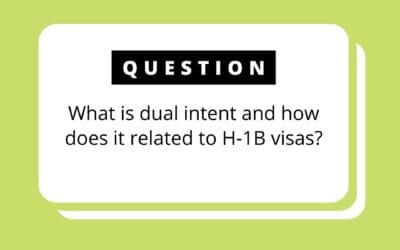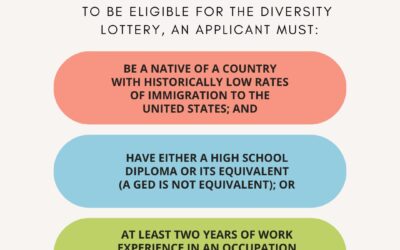USCIS Waives COVID-19 Vaccination Requirement for Adjustment of Status Applicants
In a significant policy shift, the U.S. Citizenship and Immigration Services (USCIS) has announced that, effective January 22, 2025, it will waive the COVID-19 vaccination requirement for individuals applying for Adjustment of Status (AOS). This important update brings relief to many individuals currently seeking to adjust their status in the United States, including those who were previously unable to comply with the vaccination mandate due to medical or religious reasons, or personal preference.
What Does This Mean for Applicants?
The COVID-19 vaccination requirement had been a significant hurdle for many AOS applicants. Initially put in place as part of the health safety measures during the pandemic, the vaccination requirement stipulated that applicants for permanent residency must show proof of COVID-19 vaccination as part of the medical exam.
Now, with the new waiver in effect, AOS applicants no longer need to provide proof of receiving the COVID-19 vaccine to complete their immigration process. This change will undoubtedly streamline the process for many applicants who have faced difficulties in obtaining the vaccine or meeting the associated medical requirements.
Who Is Affected by This Change?
This update applies to those filing for Adjustment of Status, typically those who are applying for a green card from within the U.S. It is important to note that the vaccination waiver will be applied to all applicants, including those who have medical or religious exemptions that were previously considered on a case-by-case basis.
For applicants who have already submitted their Adjustment of Status applications and may have been delayed due to the COVID-19 vaccination requirement, this change should help expedite their process. Additionally, it will likely provide some relief to those who were undecided or unable to meet the vaccination requirement.
Why Is This Change Happening?
The decision to waive the vaccination requirement comes as part of the broader move to return to pre-pandemic immigration processing practices. With the continued evolution of the pandemic and the decreasing health risks associated with COVID-19, the USCIS has determined that the vaccination mandate is no longer necessary for AOS applicants.
This change also aligns with a broader shift in the U.S. government’s approach to pandemic-related policies, including the relaxation of travel restrictions and other health measures for international travelers and immigrants.
How Will This Impact Future Applications?
For anyone considering applying for Adjustment of Status in the future, this update simplifies the process. Applicants no longer need to worry about providing proof of vaccination unless required by other immigration-related health requirements. It’s important to stay updated with any further announcements from USCIS, as immigration policies can change.
If you are in the process of adjusting your status or have questions about your eligibility or the latest updates in U.S. immigration policies, now is the time to take action.
Need more guidance?
For assistance with your Adjustment of Status application or to discuss how this new policy change may affect your case, contact Attorney Dayna Lally at Lally Immigration Services, LLC. Email Dayna Lally today for personalized advice and expert guidance through the immigration process.
Disclaimer: This blog article is provided by Lally Immigration Services, LLC for informational and marketing purposes. This article does not constitute legal advice, nor does it establish an attorney-client relationship. No reader should act, or refrain from acting, on the basis of any information presented in this article, or elsewhere on this website, without seeking the advice of appropriate legal counsel, or other professional counsel, licensed in the relevant jurisdiction. Lally Immigration Services, LLC expressly disclaims any and all liability with respect to any actions taken, or not taken, based on any content of this article or website. Prior results do not guarantee a similar outcome.
Last Reviewed/Updated: 01/23/2025




